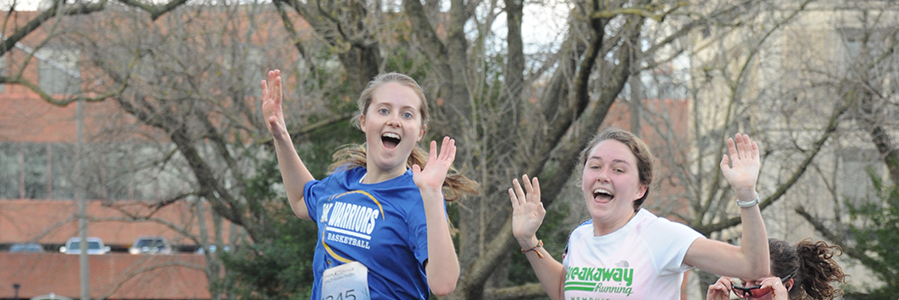
Covid Safety Protocol will include but not limited to:
- If you are or have been sick within the last 2 weeks, stay home.
- If you have any Covid symptoms, stay home.
- Event is being limited in size and scope from a participant and logistical standpoint to adhere to all safety protocols.
- Waves and field separation will be implemented if necessary.
- Masks will be required in the pre-race area, at the starting line and at all the water stops.
- All participants will be required to maintain a 10-foot distance at all times.
- The entirety of the event will be held outdoors.
- Bib numbers will be handed out outdoors in 10-minute 10-people time frames. Shirts will be handed out right after finishing.
- There will be no cups at water stops and all runners will be required to carry a water bottle.
- The only nutrition at the finish and at the aid stations will be gels and single-serve items. Runners are encouraged to bring their own.
- There will be no expo.
- Port-a-potties will be separated and hand sanitizer will be available inside and outside.
- All pre-race briefing and instructions will be via email and social media.
Medical Information
Race day medical support will be provided by the staff of The Runner’s Clinic at UVa and the Western Albemarle Area Rescue Squad.
Medical Personnel will be posted at each of the aid stations as well as the near the finish line. Emergency Medical Transport will be on call to respond throughout the course.
If you need help or if you know of a runner in distress, please report to medical personnel or any race volunteer.
Weather in Charlottesville in April can range from freezing to exceptionally warm and humid. Be prepared for both. Dress weather appropriately including hat and gloves in cold weather. If hot weather is present, plan to run slower, especially at the start.
Hydrate appropriately. Hydrate similarly to how you have been during training. Hydrate a bit more if weather is hot. Avoid overhydrating. There is no advantage to drinking excessively large volumes of water in the days leading up to the race and, in fact, this can be dangerous. Although we have different hydration needs based on our activity and how much we sweat, a common recommendation is to drink 4-6 cups of fluids daily as a baseline. Add one extra cup for every 20 minutes that you run that day. Coffee and alcohol do not count. On Friday before the race, drink one cup of fluid between dinner and bedtime. Have another cup of fluid after awakening.
If you are nursing an injury entering the race, be smart and plan to run slower.
You should not run if an injury is causing more than mild pain or if it causes you to change your gait. Most injuries incurred on race day include simple sprains, strains, blisters, and chaffing. Medical personnel at the aid stations and the finish can help you with these if needed.,
If you have been sick during race week you should consider taking it easy or avoiding the race altogether. Do not run if you have had a fever within 48 hours of race time.
Occasionally a runner will suffer a more significant illness or injury such as heat illness or a heart attack that requires immediate attention. Symptoms of more significant illness can include lightheadedness, dizziness, confusion, feeling faint, chest pain, severe headache, and vomiting. If you find yourself in distress, seek help immediately. Any volunteer can call for help.
The Medical Staff of the Charlottesville Marathon wishes all participants a safe and enjoyable race day!
Bob Wilder, MD, FACSM
Siobhan Statuta, MD
David Hryvniak, DO
The Runner’s Clinic at UVA